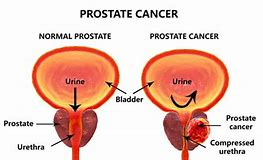Texila American University Deputy Vice Chancellor Professor Ajay Kumar Poddar has implored men in Zambia to be proactive in health seeking behavior if the fight against prostate cancer is to make positive strides.
Professor Poddar said that prostate cancer is often diagnosed late because of the tendency by some men to avoid regular health check-ups.
He said treatment is available for prostate cancer depending on the stage of the cancer. He has called on men to avoid depending solely on their peers for medical information but seek professional attention.
Professor Poddar said men, especially those between 40 and 60 years old, should take regular medical check-ups which include prostate cancer screening.

He noted that some of the symptoms of prostate cancer are frequent urination, weak or interrupted urine flow or the need to strain to empty the bladder, the urge to urinate frequently at night, blood in the urine, blood in the seminal fluid, new onset of erectile dysfunction, pain or burning during urination, which is much less common.
Professor Poddar however noted that sometimes men with prostate cancer do not have any of those changes.
He quickly added, “other noncancerous conditions of the prostate, such as Benign Prostatic Hyperplasia (BPH) or an enlarged prostate, can cause similar symptoms. Or, the cause of a symptom may be a different medical condition that is not cancer.”
Professor Poddar added that urinary symptoms also can be caused by an infection of the bladder or other conditions and that medical check-ups were very important.
He said there is need for public education that would help men get to the place of admitting that prostate cancer was a problem in Zambia, and that this problem needs to be addressed.
“I suggest a yearly thorough medical checkup to rule out all possible infections or diseases. The body is irreplaceable therefore, we should take keen interest in ensuring we keep it healthy”, said Professor Poddar.
Professor Poddar said that men also need to take personal responsibility for their own health and ensure that they seek professional consultation first.

